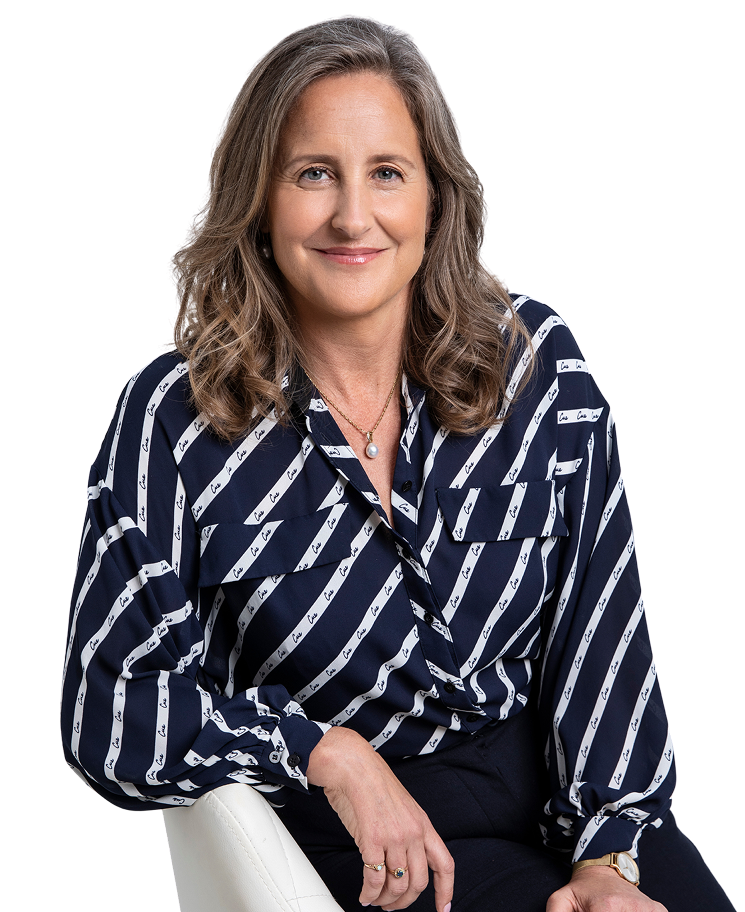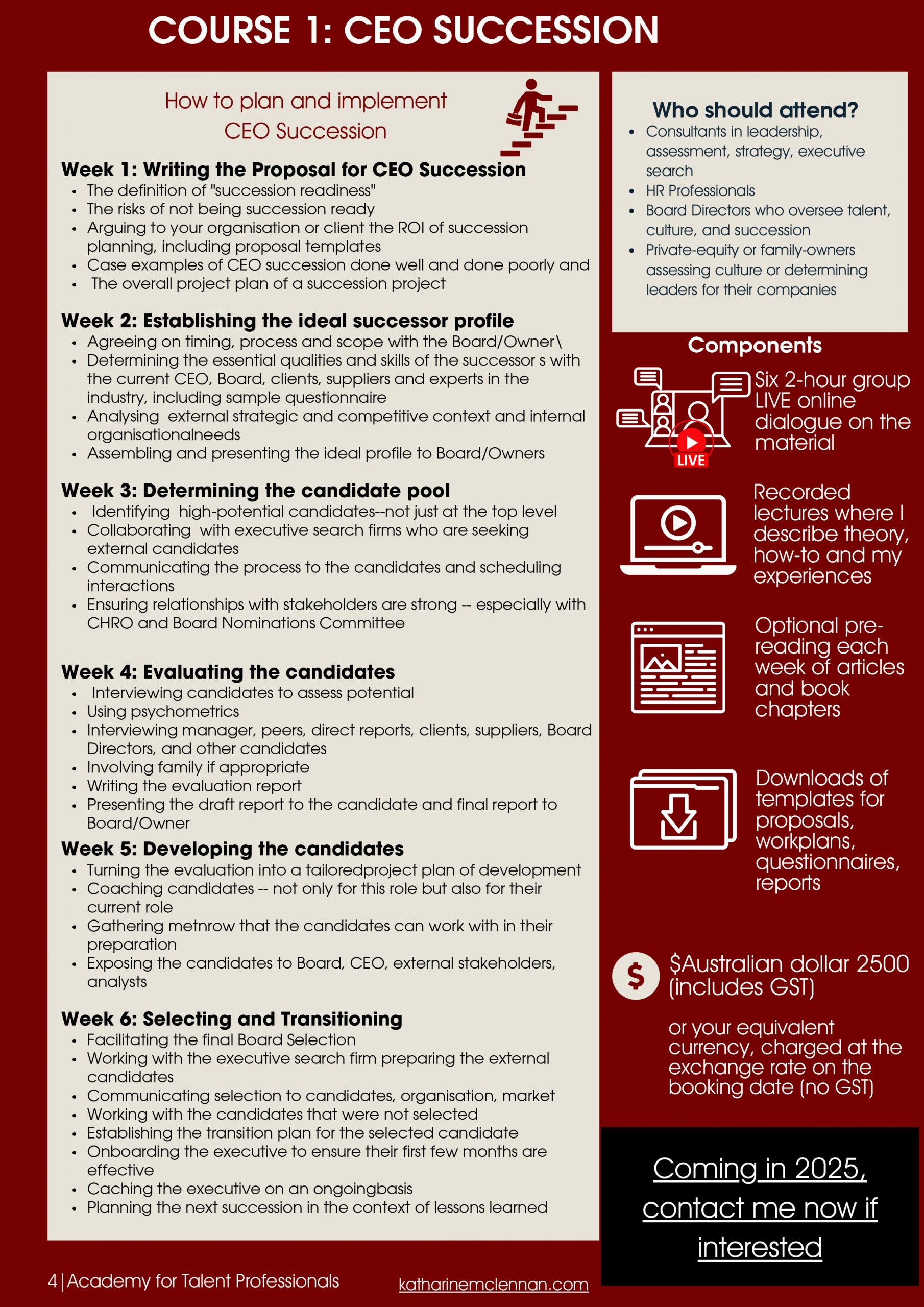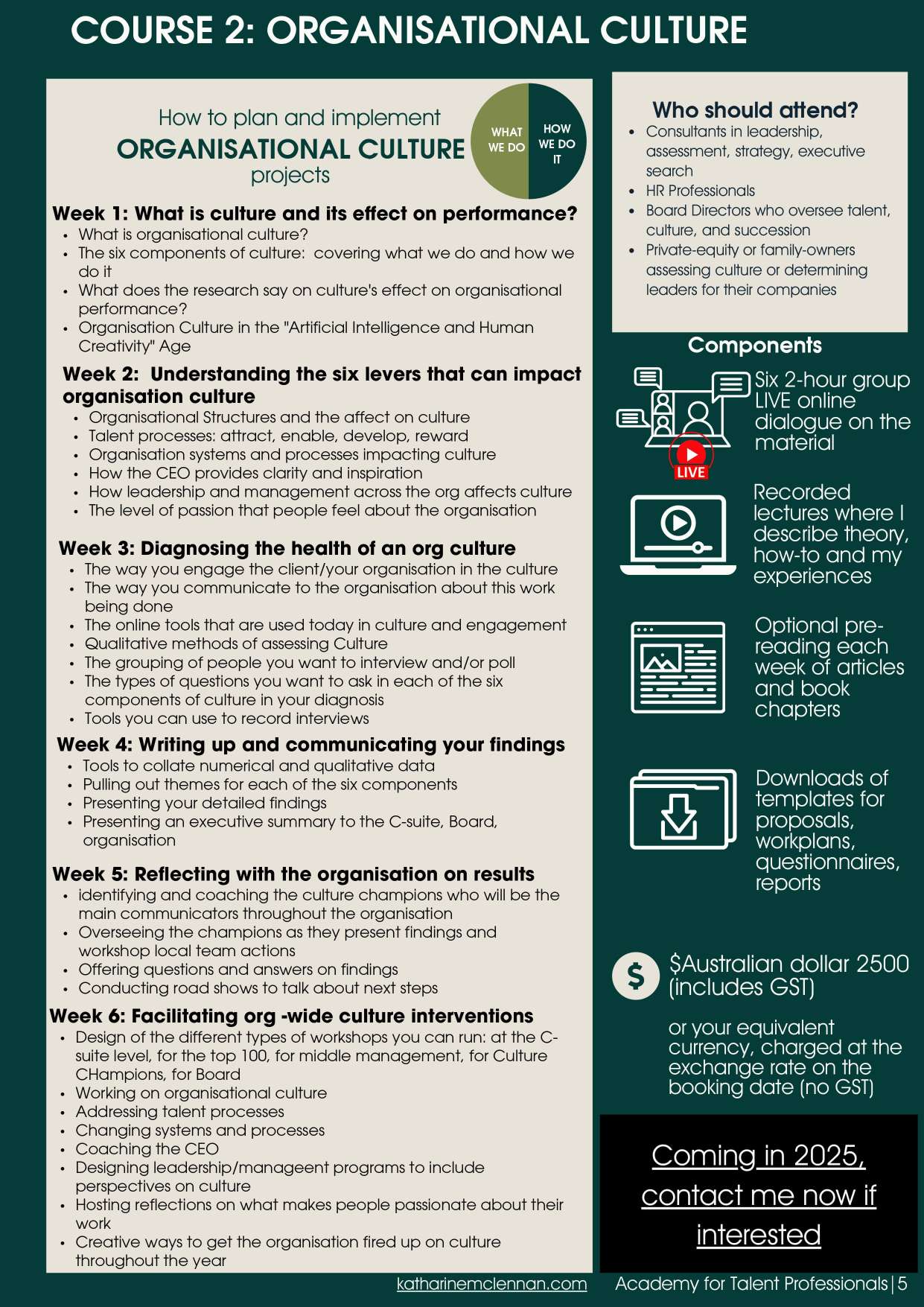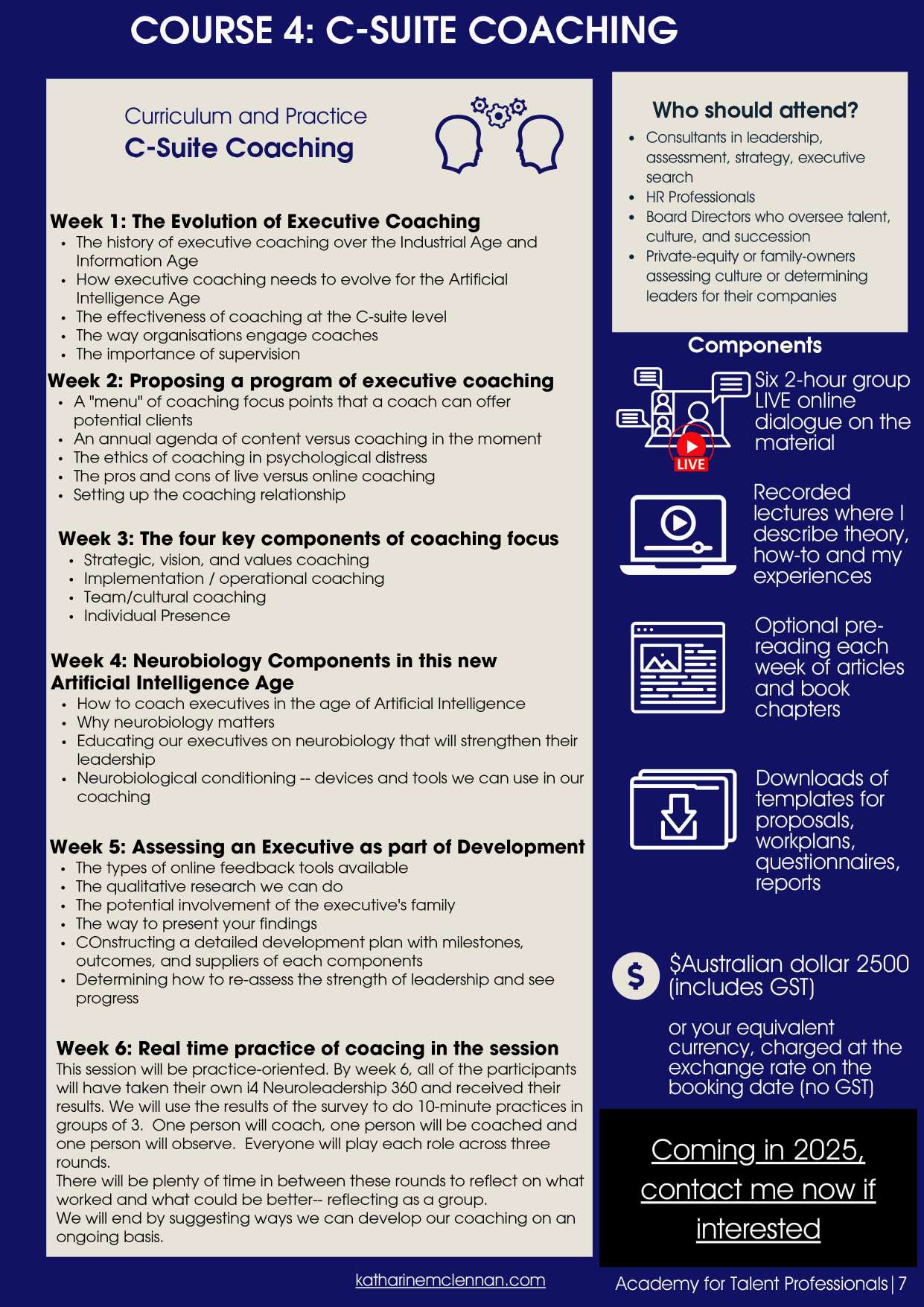
From Foundational Theory to Step-by-Step Implementation: How-To Courses for In-House People & Culture Teams and External Leadership & Culture Coaches and Advisors

Succession planning, readiness assessment, board engagement, internal vs external candidates, transition choreography
Executive team alignment, collective decision-making, trust and dynamics, shared purpose and execution rigour
CEO-led cultural alignment, diagnostics, behaviour change, strategy–culture coherence, transformation journeys
One-on-one coaching with CEOs, legacy, vertical development, influence, resilience, inner/outer alignment

Over my 35-year career, I’ve worked both “inside” as a senior executive – serving as the most senior People & Culture officer at Commonwealth Bank and Cochlear and “outside” as a C-Suite advisor to over 50 organizations, specializing in CEO succession, leadership psychology, and culture blueprinting.
As a natural storyteller and teacher, I connect with audiences through tales of leadership lessons I’ve taught clients and those I’ve learned firsthand in the executive chair. I complement these relatable (and often hilarious) stories by challenging audiences with fresh perspectives. Lately, I’ve drawn on topics like neuroscience, ancient philosophy, and everyday psychotherapy.
Known for my Oprah-like audience connection, I engage participants to work with me in real-time, helping them translate their “aha” moments into actionable steps they can take to their next meeting or into their home life.

Other services Katharine offers…
Week 1: Writing the Proposal for CEO Succession
Week 2: Establishing the ideal successor profile
Week 3: Determining the candidate pool
Week 4: Evaluating the candidates
Week 5: Developing the candidates
Week 6: Selecting and Transitioning

Week 1: What is culture and its effect on performance?
Week 2: Understanding the six levers that can impact organisation culture
Week 3: Diagnosing the health of an org culture
Week 4: Writing up and communicating your findings
Week 5: Reflecting with the organisation on results
Week 6: Facilitating org -wide culture interventions

Week 1: Writing the Proposal for Team Projects
Week 2: Assessing the Effectiveness of a Team Reviewing market-available team diagnostics
Week 3: Interventions to increase performance
Week 4: Design variations on team workshops
Week 5: Exercises you can use in any workshop for teams
Week 6: Coaching team managers on team performance

Week 1: The Evolution of Executive Coaching
Week 2: Proposing a program of executive coaching
Week 3: The four key components of coaching focus
Week 4: Neurobiology Components in this new Artificial Intelligence Age
Week 5: Assessing an Executive as part of Development
Week 6: Real time practice of coacing in the session
This session will be practice-oriented. By week 6, all of the participants will have taken their own i4 Neuroleadership 360 and received their results. We will use the results of the survey to do 10-minute practices in groups of 3. One person will coach, one person will be coached and one person will observe. Everyone will play each role across three rounds.
There will be plenty of time in between these rounds to reflect on what worked and what could be better- reflecting as a group.
We will end by suggesting ways we can develop our coaching on an ongoing basis.
